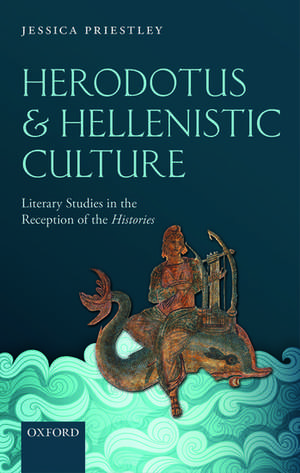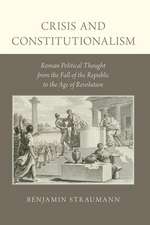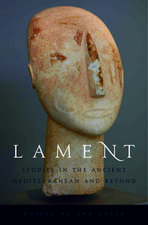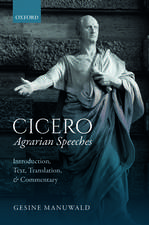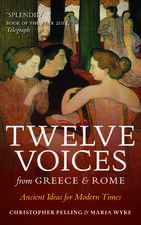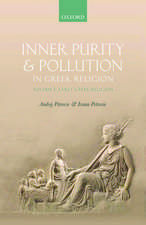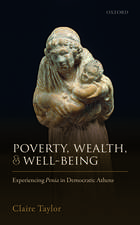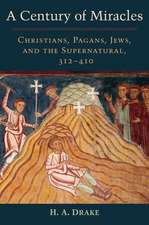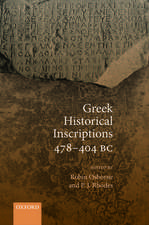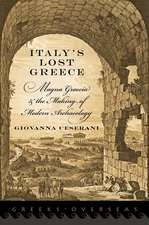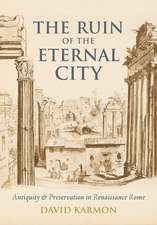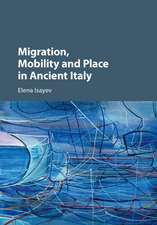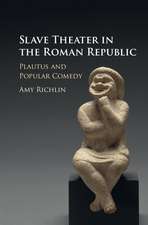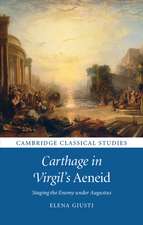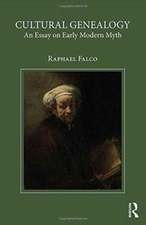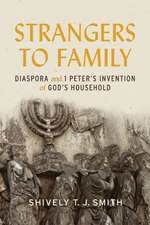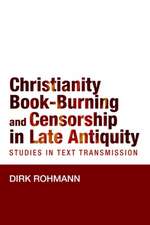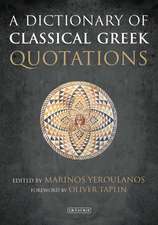Herodotus and Hellenistic Culture: Literary Studies in the Reception of the Histories
Autor Jessica Priestleyen Limba Engleză Hardback – 13 feb 2014
Preț: 685.29 lei
Preț vechi: 985.26 lei
-30% Nou
Puncte Express: 1028
Preț estimativ în valută:
131.15€ • 135.48$ • 109.15£
131.15€ • 135.48$ • 109.15£
Carte tipărită la comandă
Livrare economică 15-21 martie
Preluare comenzi: 021 569.72.76
Specificații
ISBN-13: 9780199653096
ISBN-10: 0199653097
Pagini: 288
Dimensiuni: 151 x 223 x 23 mm
Greutate: 0.48 kg
Editura: OUP OXFORD
Colecția OUP Oxford
Locul publicării:Oxford, United Kingdom
ISBN-10: 0199653097
Pagini: 288
Dimensiuni: 151 x 223 x 23 mm
Greutate: 0.48 kg
Editura: OUP OXFORD
Colecția OUP Oxford
Locul publicării:Oxford, United Kingdom
Recenzii
Herodotus and hellenistic Culture offers a thoughtful discussion of the evidence for the historian's place in Hellenistic thought.
Jessica Priestley, in Herodotus and Hellenistic Culture, has taken full advantage of its speed and throughness in text-scanning to augment her survey of the Hellenistic world's receptive responses between the late fourth and the mid-second centuries BC. And her focus on Herodotus also provides a striking instance of the breakdown between genres ... Her wide-ranging collection of texts influenced by Herodotus, and manipulating his work for their own ends, take in - but goes well beyond - the historical, to explore poetry, geographical treatises and ancient scholarship, including literary criticism. That the use being made of the Histories today should thus be so strikingly echoed by their reception in antiquity may well be true, and Priestley makes a convincing case for it.
In summary, this study not only provides new data ... but also focuses on authors and genres that are not normally studied in historiography.
Herodotus and Hellenistic Culture steers readers toward a more radical model of Herodotean reception than prior scholarship has put forth. It will teach contemporary readers not only about Herodotus' ancient readers but also about Herodotus. Students of Herodotus should find the book a refreshing turn in Herodoteana, in which scholarly perspectives and tendencies long since honed and, in some cases, at risk of becoming 'unduly entrenched' find new life as they are directed toward less familiar texts.
Priestley's volume is an engaging and fascinating one which, by looking back along this chain of reception into antiquity, not only exposes what Herodotus meant to the ancients, but also opens up the intriguing question of what Herodotus means to the modern world.
Arriving at any definitive conclusions about Hellenistic culture is, of course, a herculean task ... but Priestley prudently focuses on a few finite approaches that yield persuasive results
... excellent study ... The book is full of striking observations and insights.
Jessica Priestley, in Herodotus and Hellenistic Culture, has taken full advantage of its speed and throughness in text-scanning to augment her survey of the Hellenistic world's receptive responses between the late fourth and the mid-second centuries BC. And her focus on Herodotus also provides a striking instance of the breakdown between genres ... Her wide-ranging collection of texts influenced by Herodotus, and manipulating his work for their own ends, take in - but goes well beyond - the historical, to explore poetry, geographical treatises and ancient scholarship, including literary criticism. That the use being made of the Histories today should thus be so strikingly echoed by their reception in antiquity may well be true, and Priestley makes a convincing case for it.
In summary, this study not only provides new data ... but also focuses on authors and genres that are not normally studied in historiography.
Herodotus and Hellenistic Culture steers readers toward a more radical model of Herodotean reception than prior scholarship has put forth. It will teach contemporary readers not only about Herodotus' ancient readers but also about Herodotus. Students of Herodotus should find the book a refreshing turn in Herodoteana, in which scholarly perspectives and tendencies long since honed and, in some cases, at risk of becoming 'unduly entrenched' find new life as they are directed toward less familiar texts.
Priestley's volume is an engaging and fascinating one which, by looking back along this chain of reception into antiquity, not only exposes what Herodotus meant to the ancients, but also opens up the intriguing question of what Herodotus means to the modern world.
Arriving at any definitive conclusions about Hellenistic culture is, of course, a herculean task ... but Priestley prudently focuses on a few finite approaches that yield persuasive results
... excellent study ... The book is full of striking observations and insights.
Notă biografică
Jessica Priestley is a Leventis Postdoctoral Fellow at the Institute of Greece, Rome, and the Classical Tradition, University of Bristol.
